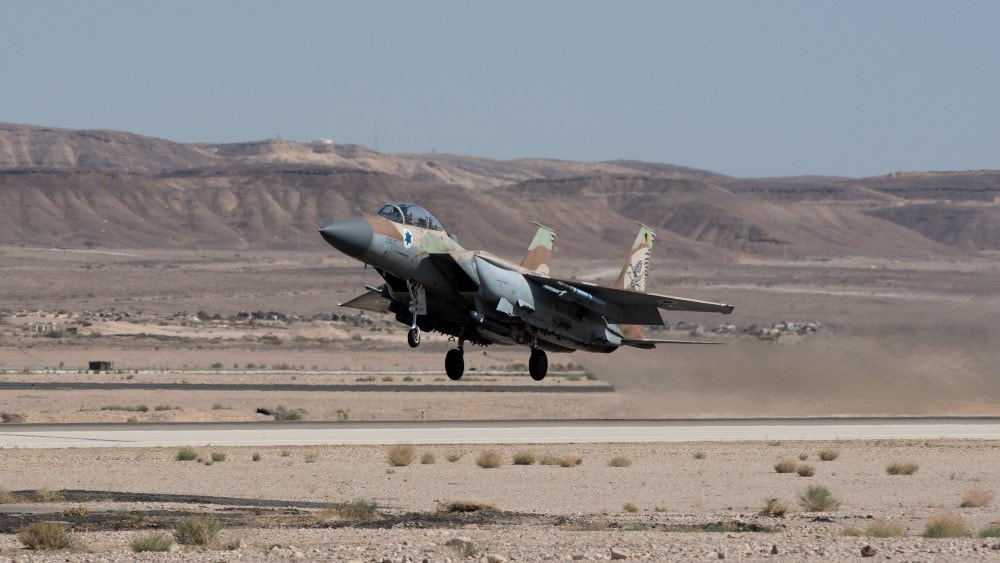Guy Elster
@guyelster
2h
#BREAKING #Iran allows IAEA to service nuclear monitoring cameras after talks with agency head Grossi: Tasnim news agency
I wonder how long that will last?.......
Guy Elster
@guyelster
2h
#BREAKING #Iran allows IAEA to service nuclear monitoring cameras after talks with agency head Grossi: Tasnim news agency
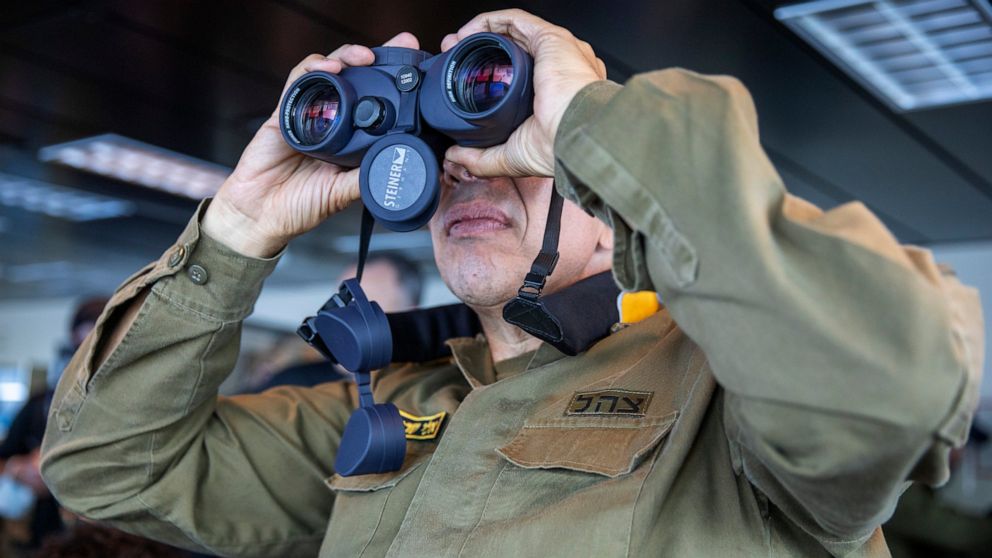
Posted for fair use.....
Iran: Ancient Rivalries, New Realities
The safety of Afghan Shia, now that the Taliban are back in control of Afghanistan, has become a major issue in Iran The new Taliban government, now more openly controlled by Pakistan, is not seen as an improvement by most Iranians or the 20 percent ofwww.strategypage.com
Iran: Ancient Rivalries, New Realities
September 16, 2021: The safety of Afghan Shia, now that the Taliban are back in control of Afghanistan, has become a major issue in Iran. The new Taliban government, now more openly controlled by Pakistan, is not seen as an improvement by most Iranians or the 20 percent of Afghans that are Shia. Many of those Afghans served as Iranian mercenaries in Syria and some are still there because they are the best, and most expensive, mercs. The new hardline Iranian government regards “defending all Shia” as one of its core functions. Doing that in Afghanistan and Pakistan, two nations that have been notorious for persistent anti-Shia violence, is going to be difficult. So far the Taliban have not gone after Afghan Shia, but Iran knows that could change quickly. The centuries old Sunni animosity towards Shia remains. As in the past, Iran will try to get what it can from the Taliban while remembering that many Taliban factions and individuals see tolerance for Shia as bad for Afghanistan.
The Quds Force commander was recently called to address Iran’s parliament about this and admitted that there were no assurances that the attacks on Shia would not resume. Pakistan sees Iranian influence in Afghanistan as a threat. Not just because of the Shia security thing, but also because Iran has, for years, been supporting anti-Pakistan Taliban factions. These are almost all Sunni and the Quds Force sees them as valuable assets. All this has been a factor in western Afghanistan politics for centuries. That is why one of the “national” languages of Afghanistan is Dari, a variant of Farsi. This is still called Persian by many because it is the main language in Iran. Currently Iran is broke and there is growing popular unrest against the religious dictatorship that has run the country since the 1980s. While the supplies of cash and weapons have largely disappeared, some Taliban factions still maintain bases in eastern Iran and have access to local medical facilities and markets.
Then there is the ancient rivalry between Persians and Indians over who gets what inside Afghanistan. The economic basis of that rivalry was control over portions of the Silk Road trade routes between China and points West. The Silk Road was replaced by more efficient European ships, and their firepower, centuries ago. In the 21st century China is reviving the Silk Road as an overland and maritime network through nations friendly towards trade with and investments from China. Iran and India see this as a threat while Pakistan sees it as an economic lifeline as well as an obligation to do what China wants. In Afghanistan China is willing to do business with whoever can provide a safe environment for Chinese investments and trade. There are doubts that anyone can do that and China is waiting to see what Iran and Pakistan can do about it. India and Russia are also cautious about doing business in Afghanistan. Because of the Pakistani control over the Taliban, India is now banned from Afghanistan but still has valuable trade relationships with Iran that Iran does not want to lose. China and India are currently archenemies of each other. Finally, there are the Afghan-based drug cartels that supply most of the heroin to the entire planet. While universally hated throughout the region, cartel money is a major source of income for the Taliban and the Pakistan military, which is currently running the government in Pakistan.
Iran still has major, and expensive, problems in Syria, Iraq, Gaza, Lebanon and Yemen. All these efforts are managed by the Quds Force as part of the ongoing war against Israel and Saudi Arabia. None of these conflicts are doing well for Iran. The most damage to Iran is occurring in Syria. The core problem is that if Sunni Islamic terrorists remain in northwest Syria (Idlib province), while ISIL is active in eastern Syria and Iranians near the Israeli border, the Syrian civil war will not be over. Iran needs that civil war to end so they can concentrate on Israel. So far no one, not even Iranian allies, are cooperating. The only ones who cannot walk away from this are the Syrian Assad government, Turkey and Israel. Syria has been at war with Israel from the beginning when modern Syria was created in 1946 and Israel in 1948. Israel would like to make peace with Syria but will settle for a quiet border. Russia depicts itself as an old (since the 1950s) Syrian ally and interested only in peace and prosperity for Syria. That leaves Iran as the real interloper and troublemaker. Dealing with Iran has been a headache for Turkey and Russia for centuries while the Arabs have several thousand years of bad memories created by Iran. In other words, Iran is difficult to deal with, something everyone can agree on. That is a common problem, not an incentive to violently gang up on Iran. Yet there is an unofficial anti-Iran coalition in Syria, with Israel, Russia, Turkey and the Assad Syrian government as active members. Israel is doing most of the fighting and hurting Iran in a major way. Russia, Turkey and Syria sympathize with Iran but do little beyond that and Iran does not like this sort of thing because it is straight out of the ancient Iranian playbook. The Syrian mess makes Iran, and especially Quds Force, look bad to Iranian minions in Iraq (Shia radicals on the Iranian payroll), Yemen (more Shia rebels), Lebanon (Hezbollah) and Gaza (Hamas). Technically Iran also has minions in Afghanistan where the local Shia and anti-Pakistan groups appreciate the help but were never very good at the obedient minion thing. Quds Force recently admitted as much in parliament where it was made clear that Quds could issue orders to the minions but, in Afghanistan, negotiations were also necessary.
A typical loyal minion response was seen recently in Gaza where renewed violence against Israel was no surprise because in August Iran-backed Hamas told Egypt, the mediator of ceasefire talks with Israel, that peace with Israel was no longer possible and another offensive will soon begin. Hamas is trying to get some sympathy and outside access from Egypt. That has not worked since Iran is at war with Egypt because it is an ally of Saudi Arabia. Hamas had demanded free access to the outside world and that means the ability to bring in dual-use materials that can be used for military purposes. Turkey is currently in negotiations with Egypt to revive diplomatic and economic relations and is willing to abandon support for the Moslem Brotherhood and Iran to make Egypt and other Arab states partners once more.
Lebanon Endgame
In Lebanon, Iran is trying to revive Hezbollah power by sending several illegal oil shipments to Syria rather than Lebanon because Syria is already under sanctions and Lebanon is not, at least not yet. Iran hopes to change that, in order to make Lebanon easier to control because Hezbollah already controls many of the black market and outlaw enterprises in Lebanon. Iran has been a major disruptive force in Lebanon since the 1980s when they provided the cash and military assistance to form Hezbollah. This was don’t to protect the Shia minority in Lebanon. Where the Shia were one of the many factions participating in a civil war that had been going on since 1975 and Iranian interference led to a negotiated end to the civil war. This involved Saudi Arabia and other Sunni Arab states, cooperating with Iran. This settlement came with a catch that meant the civil war had not ended but just paused while Iran expanded Hezbollah power via cash and weapons. Hezbollah soon became a state within a state by controlling large portions of southern Lebanon and acquiring veto power over the elected Lebanese government. Iran also acquired Syria as an ally in the 1980s and got away with having Syrian troops part of the peacekeeper force that occupied much of Lebanon to prevent the civil war from restarting. Most Lebanese saw the Syrian troops as an occupation force that was there to protect black market and drug smuggling operations that enriched Hezbollah and Syria at the expense of most Lebanese. Over the decades the Lebanese government sought to reduce the Iranian influence and illegal Hezbollah control of the south. Iran helped Hezbollah exploit the complex and often corrupt factional politics of Lebanon, which had a population where no one was a majority. Christians were the majority after World War II but that changed as Palestinians moved in as refugees and formed armed militias that became a threat to Lebanese as well as Israel, which until the last decade was generally considered the enemy by most Moslems in the region. That began to change in the 21st century when more and more Arab states realized that Israel was more valuable as an ally than the target of violence that always ended up hurting the Arab attackers much more than the Israeli defenders. The Israelis were also the most effective nation in the region against the growing Iranian threat. Iran and Hezbollah are seen as the cause, and chief beneficiary of the recent collapse of the Lebanese economy and continued political chaos. The non-Shia majority in Lebanon realize that the fuel shipments to Lebanon are not “free” but do fill an immediate need because the Lebanese currency is worthless and the economy unable to function. With control of the black market for fuel, Hezbollah and Iran can expand their power, as they did in Syria until 2011 when the non-Shia majority rebelled.
For the moment Iran cannot call on Hezbollah to carry out any sort of major military operation against Israel. First, Hezbollah must deal with local problems because most Lebanese want Hezbollah gone and getting Lebanon involved in another war with Israel might see Hezbollah fighting Israel and Lebanese at the same time. Iran wants to destroy one enemy at a time. Iran hopes a major war with Israel will result in more popular support from all Moslems in the region. That’s more of a gamble than a sure thing as Iran has replaced Israel as the designated “enemy”.
Nuclear News
The new Iranian government has made it clear that it wants all sanctions lifted before any serious (and probably unsuccessful) negotiations over ending the Iranian nuclear weapons program can take place. China does not see Iranian nukes as a problem because Iran understands that China has no qualms about using extreme (even nuclear) violence against any threats from a nuclear armed Iran. China is telling Iran that China can be their best friend or worst enemy. So far Iran is playing nice towards China because that makes it easier to pressure European countries into lifting sanctions despite Iran continuing with its nuclear problem. The Americans are still a problem but are not beyond some creative deception and intimidation.
What Really Matters News
Economic conditions for most Iranians continue to get worse. Last month the (12-month average) inflation rate hit 45 percent and is a little worse in rural areas, where most of the religious dictatorship supporters live. The American trade and financial sanctions mean there are a lot fewer dollars in Iran and these are essential to pay for imports. The Iranian currency has been at record lows versus the U.S. dollar. Currently it costs about 278,000 rials to buy one U.S. dollar. A year ago it hit a record 317,000 rials per dollar. This catastrophic weakening of the rial began in 2017 when the U.S. revived economic sanctions. By August 2019 it cost 120,000 rials to buy a dollar. Back in 2015 a dollar could be had for 32,000 rials. The current foreign exchange crisis is partly due to exporters of non-oil goods keeping about half the money they receive outside the country. That is a good business decision because that money is safer from government corruption if it is kept in foreign banks. These sanctions plus the covid19 shutdowns shrank the economy (GDP) by nearly ten percent in 2020. GDP has been tanking since sanctions were revived in 2017. Inflation was 30 percent a year ago and getting worse. The unemployment rate is twelve percent but the underemployment rate, because of firms shut down by quarantines, is much higher. Over half the population is visibly living below the poverty line. For more than a year a growing number of senior officials expressed fear this will spark another round of violent anti-government protests. Even government-controlled media is openly discussing this prospect. Surrender is not an option for the religious dictatorship, which encouraged retired IRGC (Iranian Revolutionary Guard Corps) generals to run for parliament and the presidency. This worked and the 2021 elections created a very pro-dictatorship parliament and president. While parliamentary decisions are subject to veto by the senior clerics in the Guardians Council, such vetoes always cause more popular opposition to the government. With more IRGC men in parliament it is now possible to block embarrassing new laws before they are passed and must be vetoed.
![Iranian President Ebrahim Raisi attending the Shanghai Cooperation Organisation summit in Dushanbe [Didor Sadulloev/Reuters] Iranian President Ebrahim Raisi attending the Shanghai Cooperation Organisation summit in Dushanbe [Didor Sadulloev/Reuters]](https://www.aljazeera.com/wp-content/uploads/2021/09/2021-09-17T131130Z_18962979_RC2PRP9EVDNI_RTRMADP_3_TAJIKISTAN-SUMMIT-IRAN.jpg?resize=770%2C513)
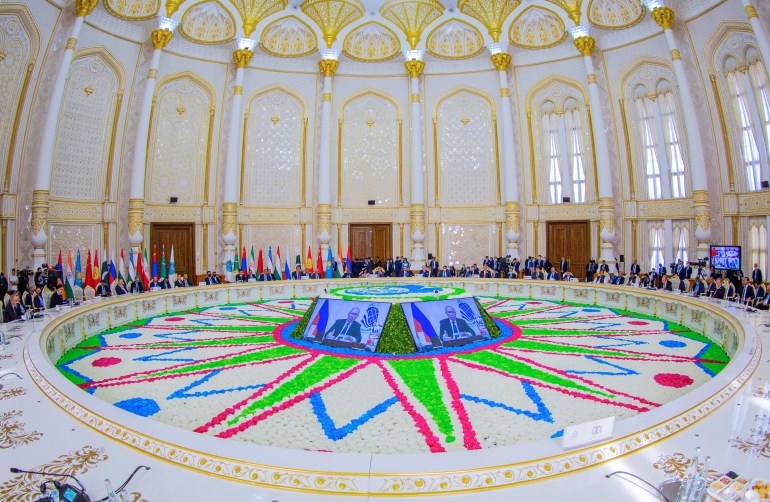
Good catch, this is a big storyIran denounces ‘unilateralism’ as it becomes full SCO member
Iran denounces ‘unilateralism’ as it becomes full SCO member
President Ebrahim Raisi sends message of regional multilateralism as Iran fully joins the influential Shanghai Cooperation Organisation.
![Iranian President Ebrahim Raisi attending the Shanghai Cooperation Organisation summit in Dushanbe [Didor Sadulloev/Reuters] Iranian President Ebrahim Raisi attending the Shanghai Cooperation Organisation summit in Dushanbe [Didor Sadulloev/Reuters]](https://www.aljazeera.com/wp-content/uploads/2021/09/2021-09-17T131130Z_18962979_RC2PRP9EVDNI_RTRMADP_3_TAJIKISTAN-SUMMIT-IRAN.jpg?resize=770%2C513)
Iranian President Ebrahim Raisi attending the Shanghai Cooperation Organisation summit in Dushanbe [Didor Sadulloev/Reuters]
By Maziar Motamedi
17 Sep 2021
Tehran, Iran – President Ebrahim Raisi has said Iran wants closer ties with its regional neighbours and rejected the United States’s “unilateralism”, as his country became a full member of the influential Shanghai Cooperation Organisation (SCO).
Iran said on Friday it had been accepted as the eighth full member of the organisation during its annual conference in Tajikistan’s capital, Dushanbe. Senior officials from other full member states – namely China, Russia, India, Pakistan, Tajikistan, Uzbekistan, Kyrgyzstan and Kazakhstan – were in attendance.
Iran had held observer status for the past 15 years. It expects the full membership to help it boost its economy and regional standing.
In a speech to the summit, newly elected Raisi predominantly emphasised his main stated foreign policy goal, which is to expand political, economic and cultural ties with countries across the region and protect Iran from unilateral punishments from the West.
Summit participants listen as Russian President Vladimir Putin delivers a speech via a video link [Didor Sadulloev/Reuters]
He said Iran’s geopolitical position, population, energy supplies, transport potential, workforce and culture can provide “meaningful momentum” to major regional masterplans, including China’s Belt and Road Initiative.
“The world has entered a new era,” Raisi said. “Hegemony and unilateralism are failing. The international balance is moving toward multilateralism and redistribution of power to the benefit of independent countries.”
In this vein, the Iranian president referred to “sanctions or economic terrorism” as major hurdles for regional progress, and called on the SCO member states to develop structures and mechanisms to fight sanctions as a group.
“Unilateral sanctions are not against only one country,” he said. “As it has become evident in recent years, sanctions have targeted more independent countries, especially members of the organisation.”
Play Video
Iran has been under harsh US sanctions since 2018, when former President Donald Trump unilaterally withdrew his country from a 2015 nuclear deal signed between Iran and world powers.
On the nuclear deal, Raisi said he viewed diplomacy as a tool to secure national interests. But he said it was only effective when all countries abided by it.
“Unfortunately, some countries believe they can turn diplomacy to their benefit through using tools of threats and pressure,” he said in another veiled message to the US as Iran and other nuclear deal signatories are expected to head back to Vienna soon to resume talks on restoring the accord.
The president said nothing can stop Iran’s “peaceful” nuclear activities, days after European powers again called on Iran to scale back its nuclear programme at the end of the latest conference of the International Atomic Energy Agency (IAEA).
Play Video
Raisi also listed the COVID-19 pandemic, terrorism, environment, cyber security and organised crime as other challenges facing the SCO members that can be tackled in unison.
The Iranian president, who touched down in Dushanbe on Thursday, held a string of high-level talks with his SCO peers, including bilateral meetings with several heads of state, and a multilateral meeting on Afghanistan.
Raisi was also slated to meet Russia’s President Vladimir Putin in person, but the two agreed to set a meeting in the foreseeable future after the latter had to quarantine after people in his inner circle tested positive for coronavirus.
SOURCE: AL JAZEERA
Good catch, this is a big story

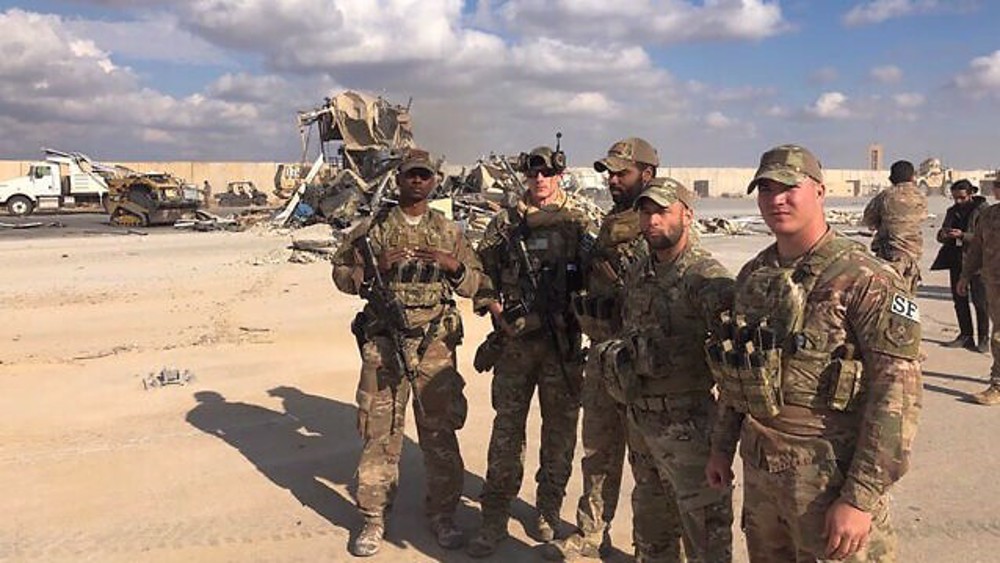
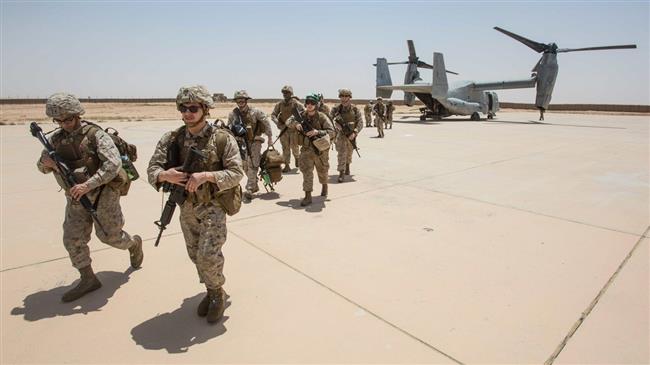

Newsmax
@newsmax
Democratic lawmakers on Tuesday removed $1 billion in military funding for Israel from legislation to fund the U.S. government after objections from House of Representatives liberals, setting the stage for a potential fight over the matter later this year.
View: https://twitter.com/newsmax/status/1440423112567242755?s=20



File it under the "this would almost be funny" category, i guess.
Kian Sharifi
@KianSharifi
The deputy commander-in-chief of the IRGC, Ali Fadavi, claimed on live TV last night that quantum physics "originated" in Iran but for unspecified reasons "we can't announce it".
View: https://twitter.com/KianSharifi/status/1441338261675204609?s=20



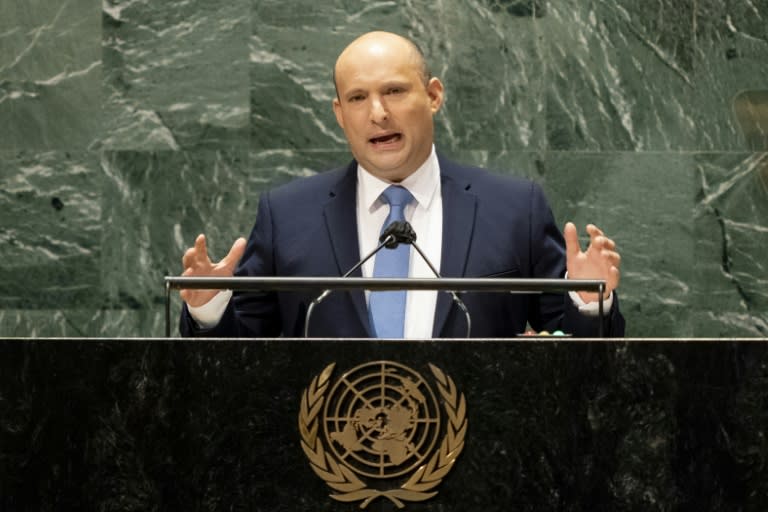
AFP News Agency
@AFP
1h
#BREAKING Iran's nuclear weapons program has crossed 'all red lines': Israel PM to UN General Assembly
Iran's nuclear program has crossed 'all red lines': Israel PM

Israeli Prime Minister Naftali Bennett, addresses the 76th Session of the UN General Assembly, accused Iran of breaching "all red lines" aimed at curbing its nuclear weapons program (AFP/John Minchillo)
Mon, September 27, 2021, 8:31 AM·1 min read
Israel's Prime Minister Naftali Bennett said Monday that Iran had breached all the "red lines" aimed at curbing its nuclear weapons program but that Israel "will not allow" Tehran to get the bomb.
In his first address to the United Nations General Assembly, Bennett claimed the Islamic republic had in recent years taken "a major leap forward" in its nuclear production capacity and ability to enrich weapons-grade uranium.
"Iran's nuclear weapon program is at a critical point, all red lines have been crossed," said Bennett, who took office in June.
"There are those in the world who seem to see Iran's pursuit of nuclear weapons as an inevitable reality, as a done deal, or they have just become tired of hearing about it," the 49-year-old premier told the world body.
"Israel doesn't have that privilege. We cannot tire. We will not tire. Israel will not allow Iran to acquire a nuclear weapon."
Iran, which says its nuclear program is for civilian purposes, said Friday that it expected talks to resume soon on reviving a 2015 landmark agreement scaling back its program in exchange for sanctions relief.
Bennett's predecessor Benjamin Netanyahu, who was in power from 2009 until June, was among the world's fiercest critics of the accord, regularly condemning it at international forums.
Bennett, a foreign policy hawk who heads an ideologically disparate, eight-party coalition government, also opposes the Iran nuclear deal, but did not mention it in his UN address.
bur-bs/mlm

Iran's nuclear program has crossed 'all red lines': Israel PM
Israel's Prime Minister Naftali Bennett said Monday that Iran had breached all the "red lines" aimed at curbing its nuclear weapons program but that Israel "will not allow" Tehran to get the bomb.news.yahoo.com
This will be an interesting week...AFP News Agency
@AFP
1h
#BREAKING Iran's nuclear weapons program has crossed 'all red lines': Israel PM to UN General Assembly
Iran's nuclear program has crossed 'all red lines': Israel PM

Israeli Prime Minister Naftali Bennett, addresses the 76th Session of the UN General Assembly, accused Iran of breaching "all red lines" aimed at curbing its nuclear weapons program (AFP/John Minchillo)
Mon, September 27, 2021, 8:31 AM·1 min read
Israel's Prime Minister Naftali Bennett said Monday that Iran had breached all the "red lines" aimed at curbing its nuclear weapons program but that Israel "will not allow" Tehran to get the bomb.
In his first address to the United Nations General Assembly, Bennett claimed the Islamic republic had in recent years taken "a major leap forward" in its nuclear production capacity and ability to enrich weapons-grade uranium.
"Iran's nuclear weapon program is at a critical point, all red lines have been crossed," said Bennett, who took office in June.
"There are those in the world who seem to see Iran's pursuit of nuclear weapons as an inevitable reality, as a done deal, or they have just become tired of hearing about it," the 49-year-old premier told the world body.
"Israel doesn't have that privilege. We cannot tire. We will not tire. Israel will not allow Iran to acquire a nuclear weapon."
Iran, which says its nuclear program is for civilian purposes, said Friday that it expected talks to resume soon on reviving a 2015 landmark agreement scaling back its program in exchange for sanctions relief.
Bennett's predecessor Benjamin Netanyahu, who was in power from 2009 until June, was among the world's fiercest critics of the accord, regularly condemning it at international forums.
Bennett, a foreign policy hawk who heads an ideologically disparate, eight-party coalition government, also opposes the Iran nuclear deal, but did not mention it in his UN address.
bur-bs/mlm

Iran's nuclear program has crossed 'all red lines': Israel PM
Israel's Prime Minister Naftali Bennett said Monday that Iran had breached all the "red lines" aimed at curbing its nuclear weapons program but that Israel "will not allow" Tehran to get the bomb.news.yahoo.com
This will be an interesting week...

/cloudfront-us-east-2.images.arcpublishing.com/reuters/XTU5KDMGAVKOFM4Z4JN3UHCIHY.jpg)
/cloudfront-us-east-2.images.arcpublishing.com/reuters/I733AOELKZPOLLIZKTA4CVO2A4.jpg)
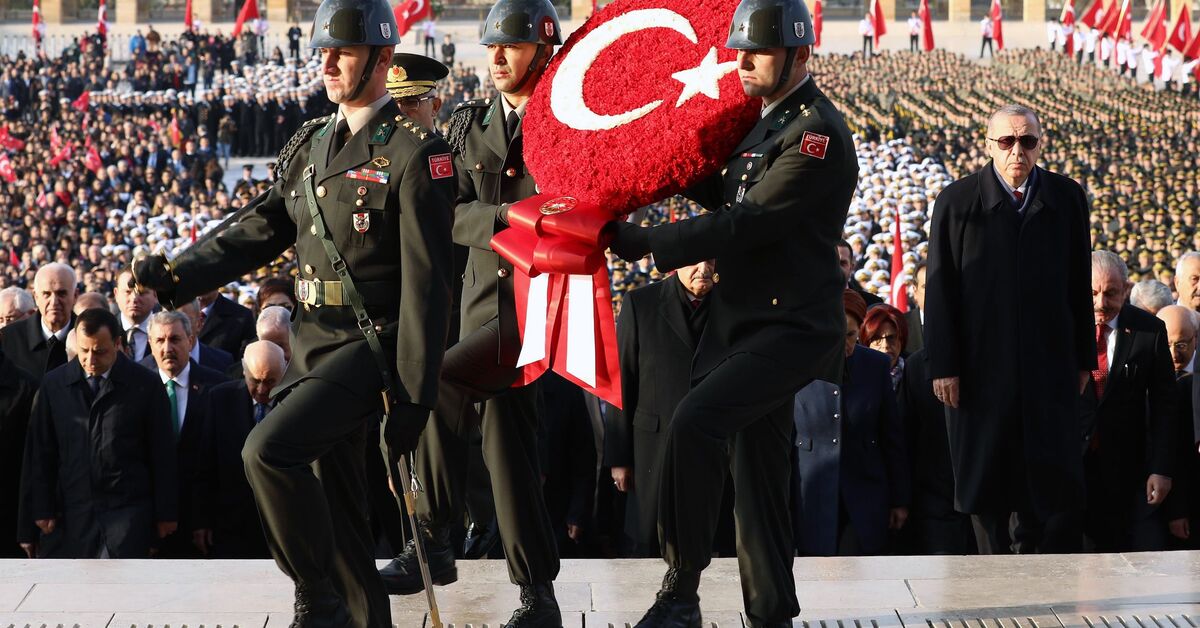
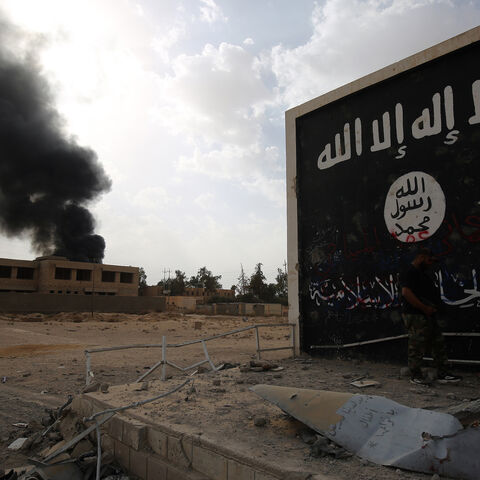
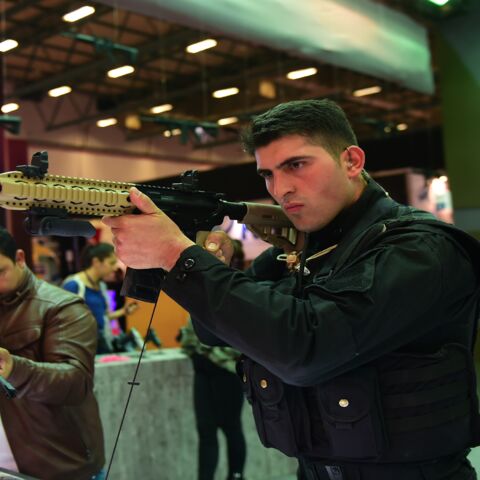
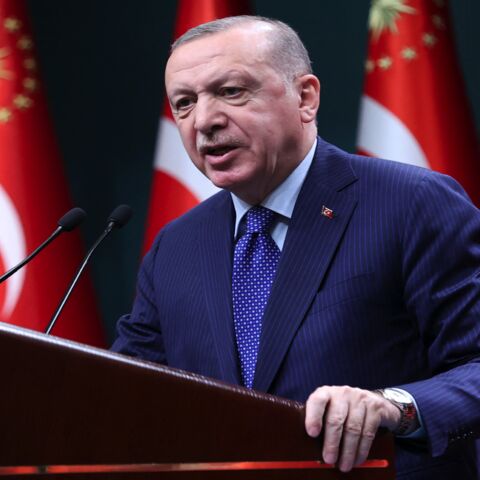

Oct 1, 2021

Ed Nash's Military Matters
40K subscribers
The sudden announcement by Iran that they are conducting a major military exercise on their border with Azerbaijan has alarmed observers.
Background videos:
The War Between Armenia and Azerbaijan - https://youtu.be/7ha9MO_j16k
How did Azerbaijan Identify Armenian Air Defences? By Letting Them Shoot Down Their Aircraft! - https://youtu.be/sgETh_55wI0
Armenia/Azerbaijan agree Peace Deal After Russian Helicopter Shot Down - https://youtu.be/76yfEGEnCqs
Syrian Mercenaries Fighting in Armenia - https://youtu.be/3rtiNNE_81M
US Navy Make Huge Arms Seizure in North Arabian Sea, plus other Shenanigans in the Gulf - https://youtu.be/85rmrYtqSI4
Things in the Gulf Are Looking Tense as Israel Accuses Iran of Attacking One of Their Ships - https://youtu.be/E4EFoTfi6xs
